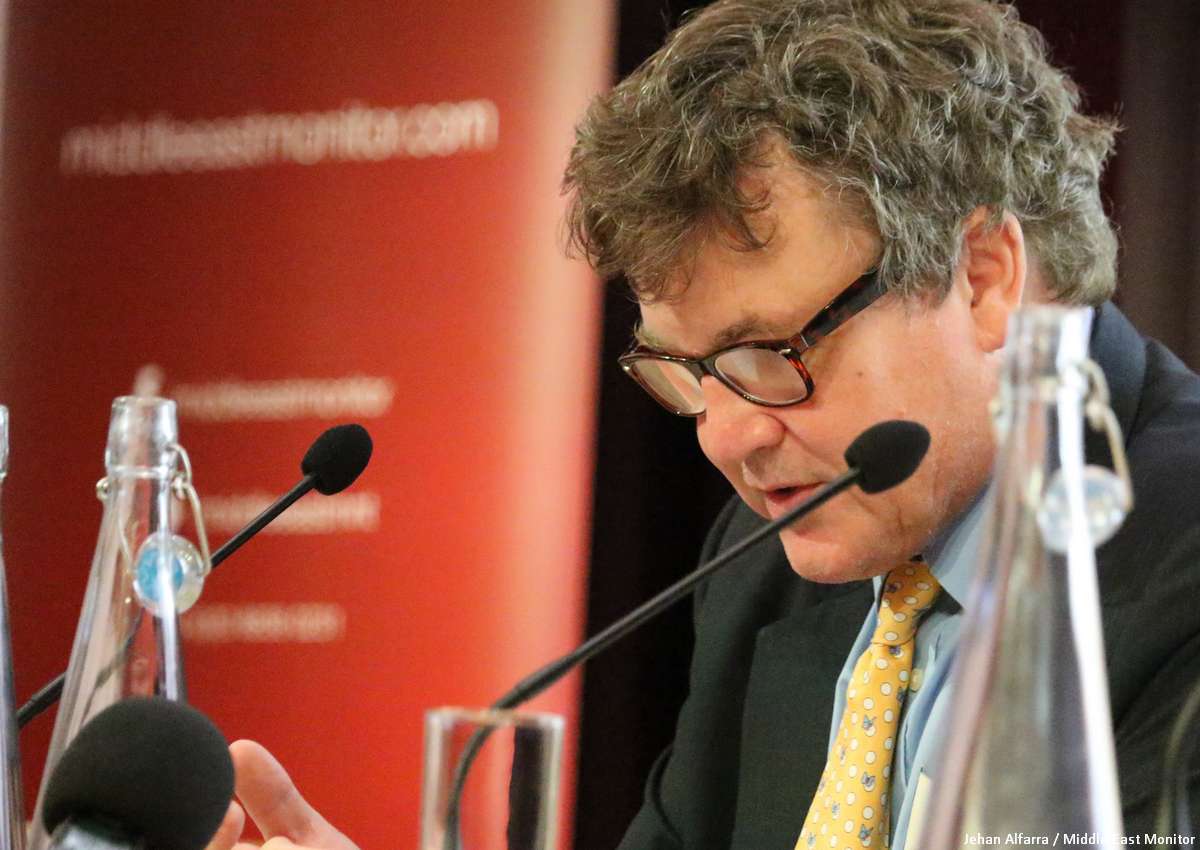Former British Foreign Secretary William Hague has sensationally stepped into the controversy of whether to move the UK’s Israel embassy from Tel Aviv to Jerusalem, warning Liz Truss that to do so would align her government with Donald Trump.
In a shock intervention that will have taken Downing Street by surprise, Hague, who is also a former Conservative Party leader, wrote in Tuesday’s Times newspaper: “Do not move the British embassy in Israel from Tel Aviv to Jerusalem.”
Hague told Truss: “This would be a breach of UN security council resolutions by one of its permanent members, break a longstanding commitment to work for two states for Israelis and Palestinians, and align Britain in foreign affairs with Donald Trump and three small states rather than the whole of the rest of the world.”
Former US President Donald Trump broke with international convention by moving the US embassy in Israel to Jerusalem in 2018 – a move which was then condemned by the British government. Only three other UN member states have embassies in Jerusalem: Guatemala, Honduras, and El Salvador.
READ: Fresh complaint submitted to ICC over US-Israel war crimes in Palestine
Hague, now a member of the House of Lords, is by far the most senior Conservative figure to come out in opposition to relocating the embassy.
He was the Conservative leader in opposition from 1997 until 2001 and served as foreign secretary between 2010 and 2015 in David Cameron’s Conservative-led coalition government.
Massively respected figure
Hague remains a massively respected figure, and his statement will encourage other Tories to follow suit, raising the prospect of another rebellion within the party against the crisis-hit Truss if she presses ahead with reviewing the location of the embassy.
Truss, who became prime minister last month, first floated the possible move in a letter to the pro-Israel lobby group Conservative Friends of Israel (CFI) during her Conservative leadership campaign over the summer.
She then confirmed she was considering the plan in a meeting with Israeli counterpart Yair Lapid on the sidelines of the United Nations General Assembly last month.
At that point, that embassy move looked like a done deal, especially since Middle East Eye understands that the review into the location of the embassy was carried out inside Downing Street rather than by the Foreign Office.
However, the opposition has grown in recent days. Both the Archbishop of Canterbury, the most senior cleric in the Church of England, and his Roman Catholic counterpart, the Archbishop of Westminster, have cautioned against the move.
On Monday, Christian church leaders from 13 religious denominations in Jerusalem came together to warn against the move, stating that it would be a “further impediment to advancing the already moribund peace process”.
Several Jewish groups and the Muslim Council of Britain have also opposed any move.
READ: Canada activist collects 800,000 documents implicating Assad in war crimes
But today’s statement from Hague is by far the most significant. It carries serious political weight, especially as MEE understands that a number of Tory MPs are likely to come out in support of the former leader.
Hague gained immediate support from former Tory chair Sayeeda Warsi who tweeted in response that the embassy review was “effectively a Trump policy prompted by Conservative Friends of Israel and supported by the Board of Deputies”.
Warsi added: “This approach damages the credibility of both organisations. It’s opposed by almost everyone else.”
The Board of Deputies of British Jews describes itself as the “voice of the UK Jewish community”.
Marie van der Zyl, the head of the Board of Deputies, last week told a CFI event at the Conservative Party conference that she was “really hopeful” the government would move the embassy to Jerusalem.
This article first appeared in English in Middle Eye East on 11 October 2022
The views expressed in this article belong to the author and do not necessarily reflect the editorial policy of Middle East Monitor.


![William Hague arrives to take their seats inside Westminster Abbey in London on September 19, 2022 [GEOFF PUGH/POOL/AFP via Getty Images]](https://i0.wp.com/www.middleeastmonitor.com/wp-content/uploads/2022/10/GettyImages-1243349908-scaled-e1665508922459.jpg?fit=1199%2C800&ssl=1)









